
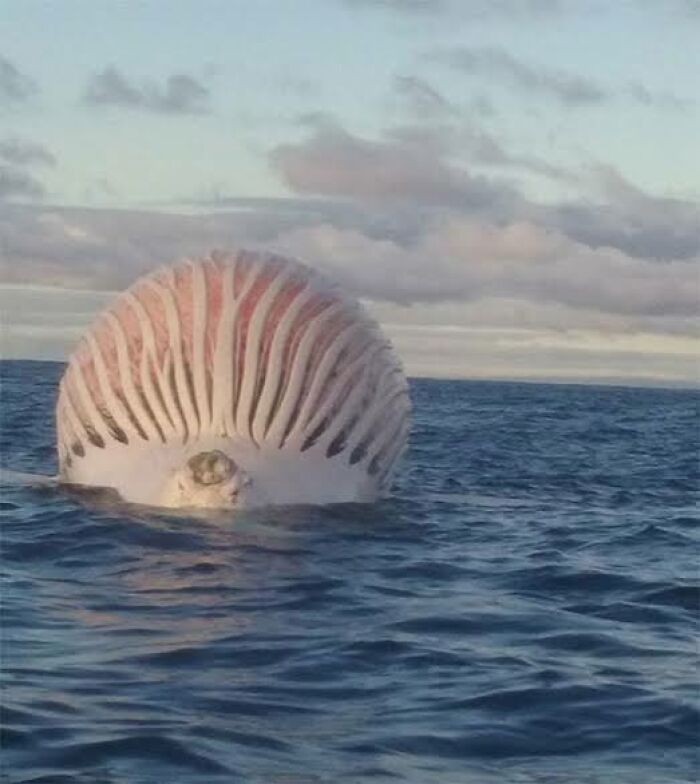
77 “Oddly Terrifying” Posts That Are Not For The Fainthearted
Humans seem to have an innate fascination with everything creepy. Many people live for the release of the spookiest horror film, which would give the average viewer nightmares for days. Some even take on professions that involve paranormal activity.
It’s also the likely reason for the Oddly Terrifying subreddit, which has more than two and a half million followers as of this posting. This side of the internet contains images that may leave you with a few uneasy emotions. It’s also the source of today’s story.
Whether you’re looking for that jolt that caffeine can’t give or are simply a fan of everything morbid, scroll away. But do proceed with a little bit of caution.
#1 A Dead Whale On The Brink Of Exploding
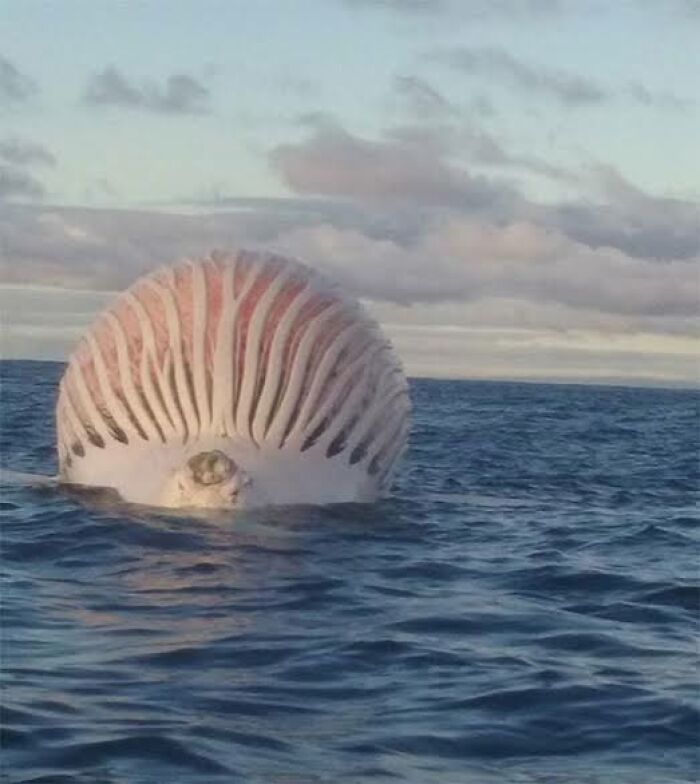
Image credits: neapolitanbby
#2 Light Blew Out On A Canadian Wendy’s Sign

Image credits: lauraintacoma
In a previous piece we published, we spoke with Dr. Kevin Corstorphine, a lecturer in American Literature at the University of Hull. As he explained, people who enjoy horror films find solace in them.
Media psychology expert Cynthia Vinney, PhD, provided a different explanation in an article she wrote for Very Well Mind. She mentioned the excitation transfer theory, which, in a nutshell, suggests that people find enjoyment in the negative effect of a horror film followed by the positive upswing upon the resolution of the threat.
#3 The Folds In This Curtain Creating The Illusion Of A Face
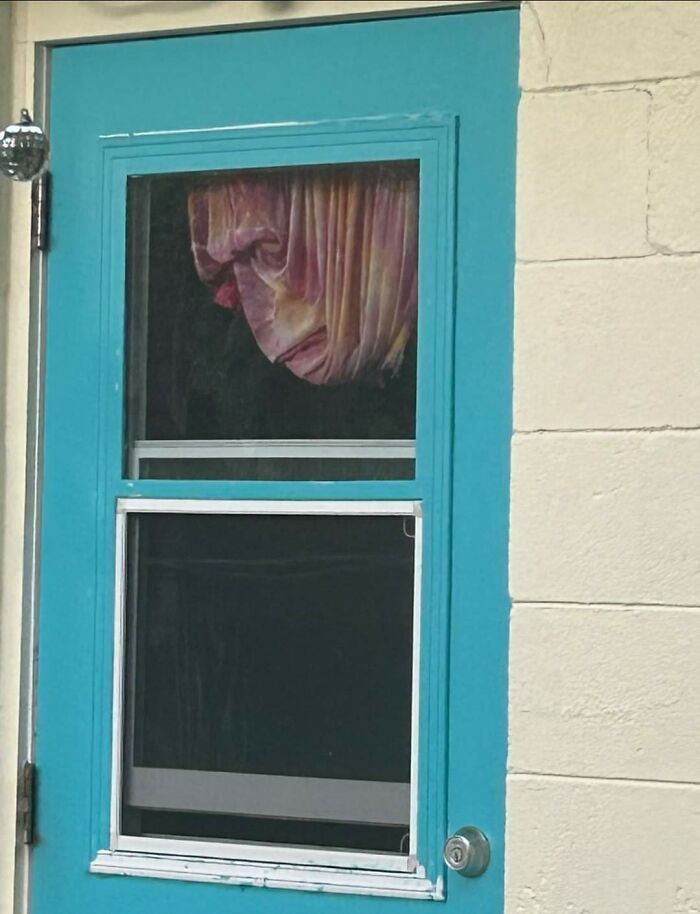
Image credits: justadair
#4 A Street In Amsterdam, Netherlands
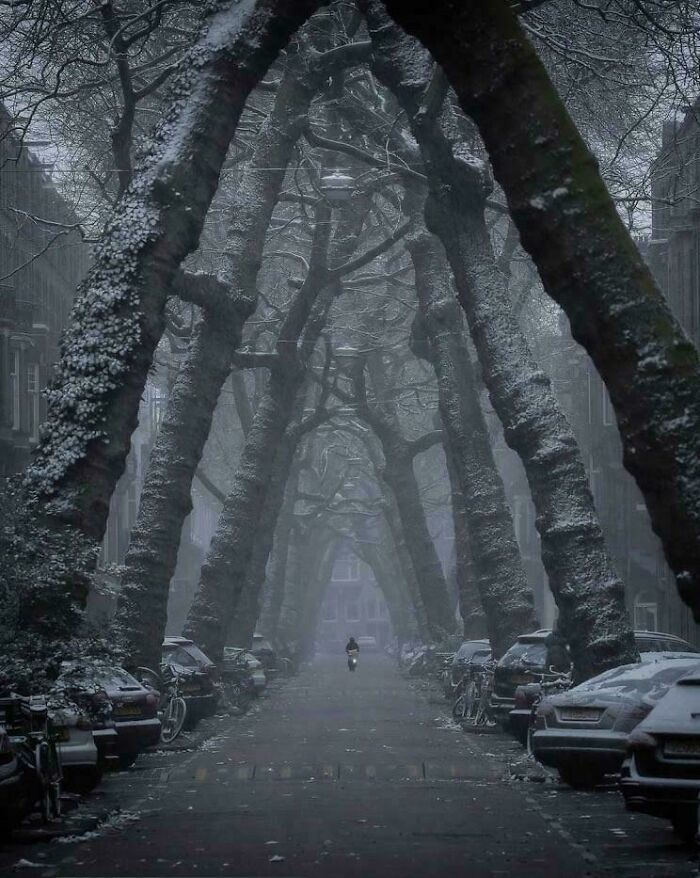
Image credits: Slygirl997
#5 This Was A Machine Patented In 1965, To Deliver A Baby Using Centrifugal Force. The Machine Would Spin The Woman Until The Baby Came Out, Which Would Be Caught In A Net

Image credits: silvercatbob
#6 Took A Couple Dozen Photos Of This Girl Outside My House And This Was One Of Them
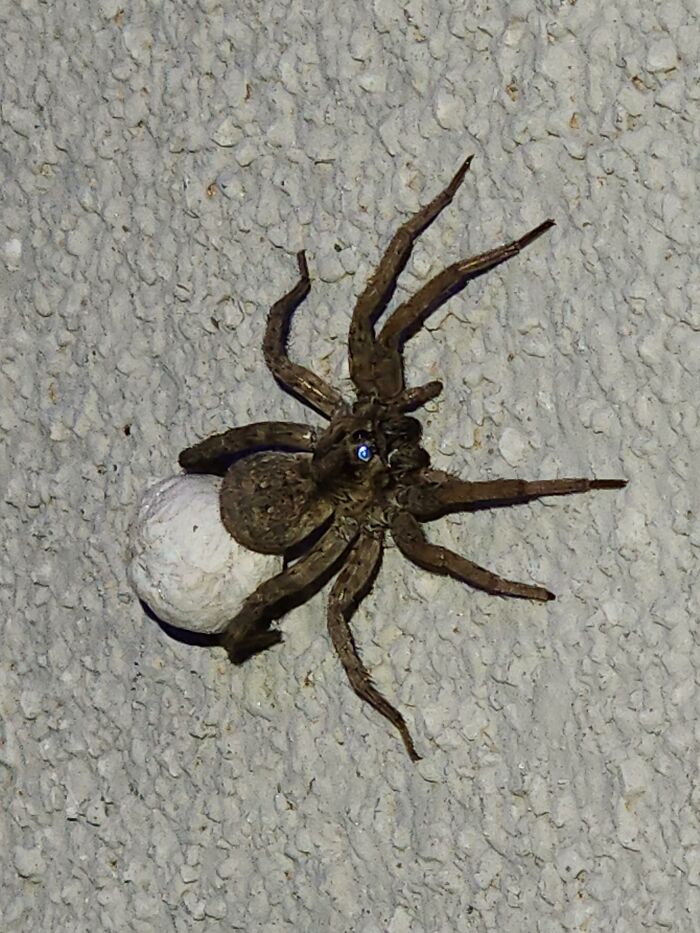
Image credits: Ivyleaguevilan
#7 Statue Of A Child At The Bottom Of This Pond

Image credits: wersh
Dr. Vinney also mentioned a 2023 study by Murray State University entitled “Exploring the Dark Side of Humanity: Motivations of Morbidly Curious Individuals.” The study delved into people’s motivations for consuming morbid media, particularly films.
The study found that morbidly curious individuals find more enjoyment in horror films with prevalent themes of gore and violence and if they can turn it into a learning experience.
This supports the theory Dr. Vinney noted in her article, suggesting that humans live vicariously through these movies. It allows us to “grapple with the darkest parts of humanity in a safe environment.”
#8 Saw The Full Mirror In My Hotel Room Randomly Shake And Discovered This Space In The Wall Behind It
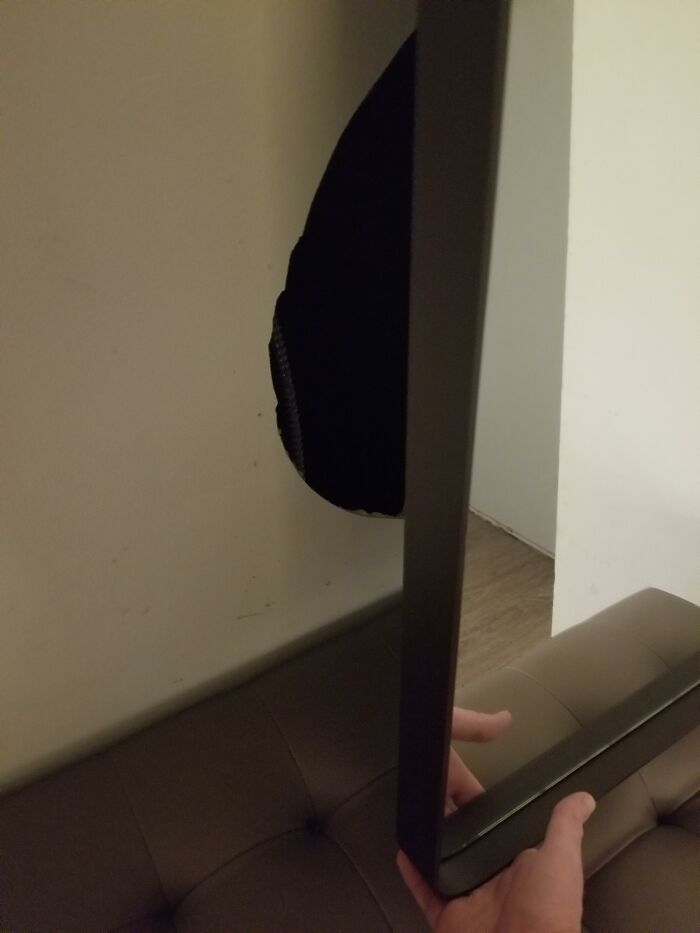
Image credits: Schlower288
#9 Stairway In Hotel Goes Forward 13 Floors Without Any Switchbacks
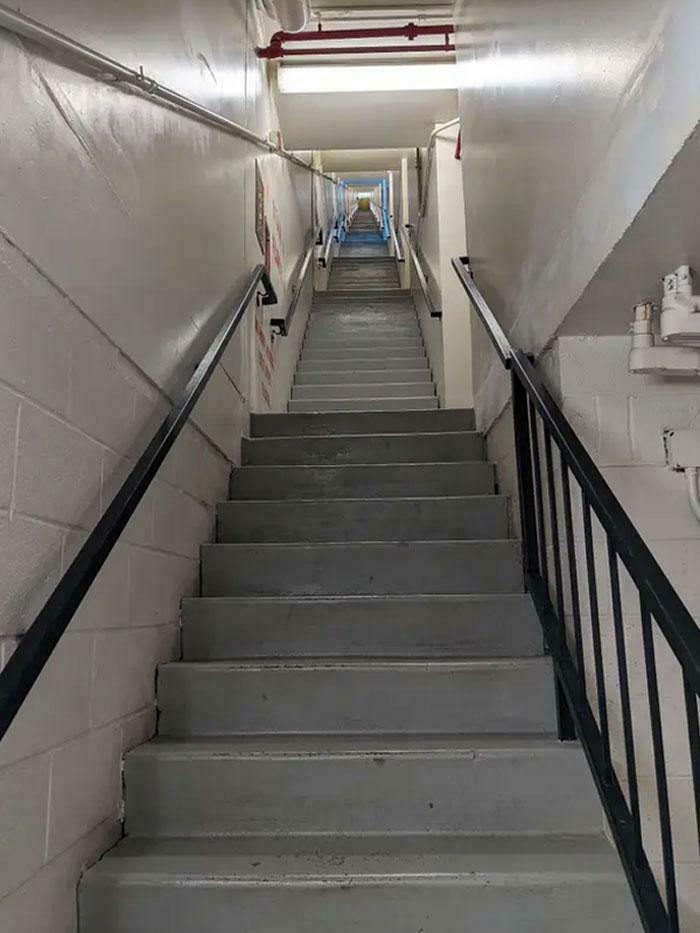
Image credits: Monsur_Ausuhnom
#10 A Camera. There Are Even Smaller Versions

Image credits: Gainsborough-Smythe
#11 The Hands Of German Serial Killer Fritz Honka
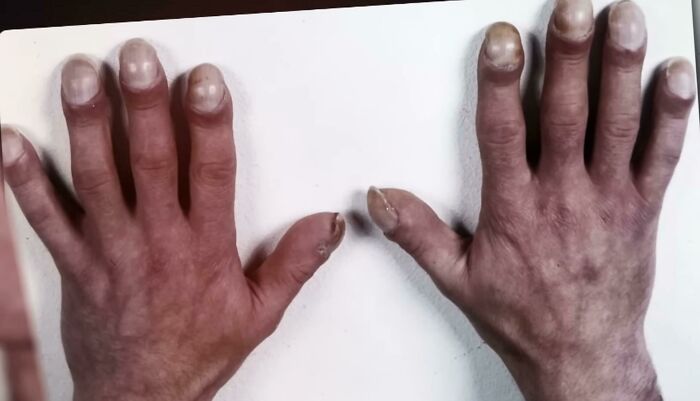
Image credits: KobraKay87
#12 The Surface Of Comet 67p, A Jupiter-Family Comet Originally From The Kuiper Belt. Filmed By The Rosetta Space Probe
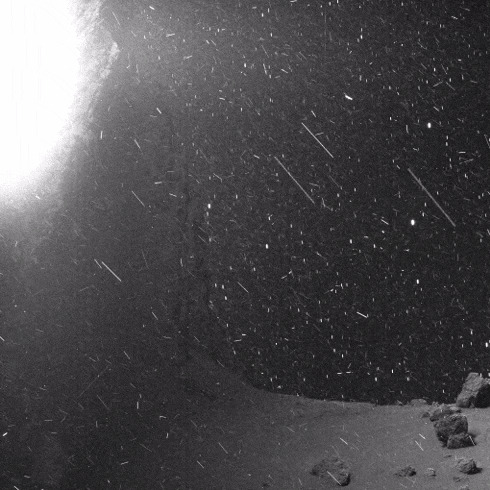
Image credits: freudian_nipps
#13 What Looks Like A Locked Cage Under My Hotel Shower. View From The Toilet, At My Most Vulnerable

Image credits: _AttilaTheNun_
#14 King Cobra Loose In My Neighborhood
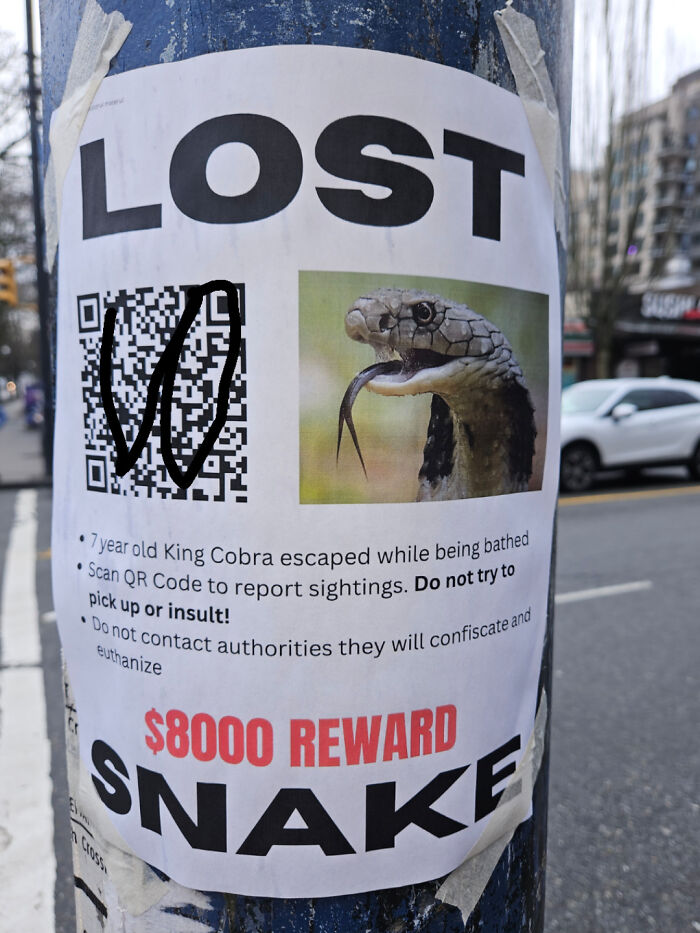
Image credits: mcnuggetfarmer
Finding a learning experience isn’t one of the top reasons people have for consuming creepy images, moving or otherwise. But apparently, there is research to support it.
Behavioral scientist Coltan Scrivner, specializing in horror and morbid curiosity, published an article in 2021 entitled “The Psychology of Morbid Curiosity: Development and Initial Validation of the Morbid Curiosity Scale.” He argues that the fascination for the macabre “drives individuals to learn about aspects of life that are perceived to be dangerous.”
“When a dangerous phenomenon is perceived to be near or impending, curiosity may spike in order to gather information about the dangerous phenomenon. By learning about the threatening factors associated with death, one can learn to avoid the negative outcomes associated with those factors,” he wrote.
#15 My Mom’s Boyfriend Has These In His Hallway. Says There His Ex-Wives. Idk Why He Still Has Them
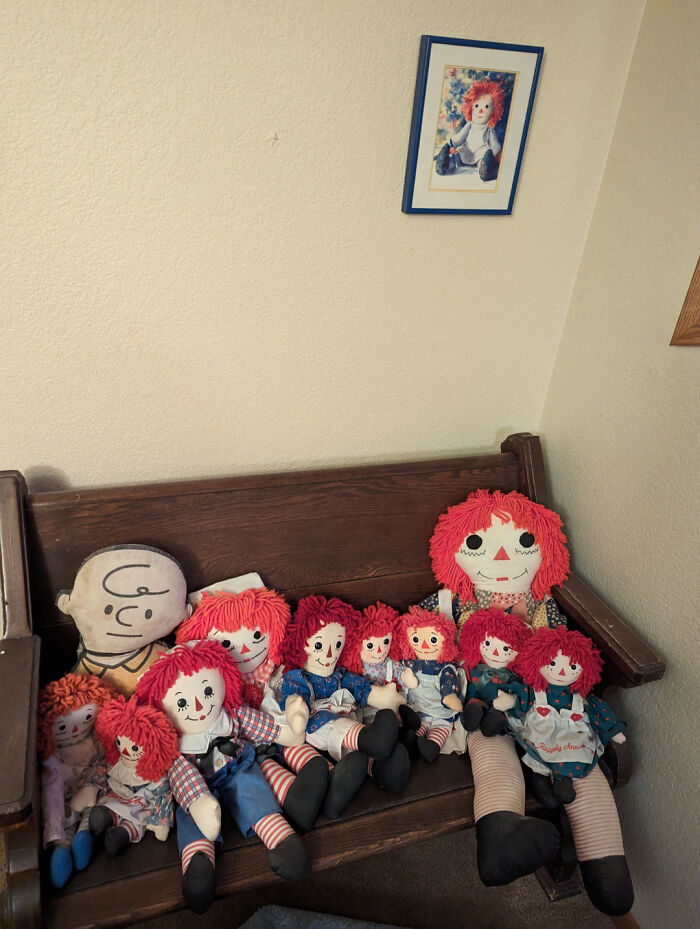
Image credits: dontfluffingtouchme
#16 The Crime Scene On The Night Of Nov. 11, 1974, That Inspired The Amityville Horror
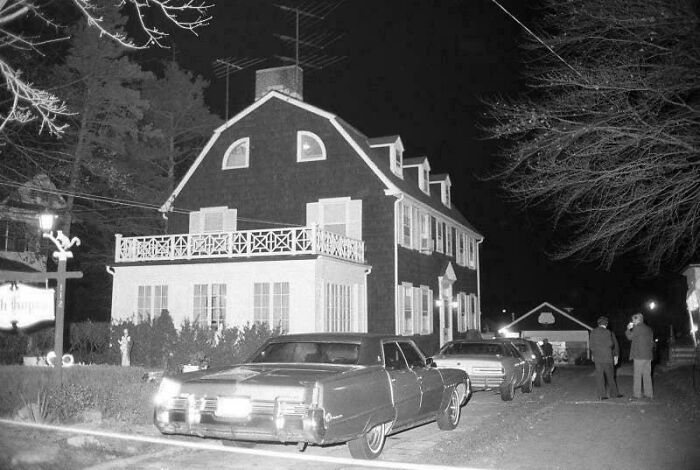
Image credits: my_vision_vivid
#17 This Guy Did Something Crazy. This Is What He Looks Like Before & After 2,000 Miles From Georgia To Maine

Image credits: truenub12
#18 These “Sunglasses”

Image credits: Donthurtmyceilings
#19 Scientists Grew ‘Mini-Brains From Stem Cells. Then The Brains Sort Of Developed Eyes

Image credits: greymanbomber
#20 Someone Brined A Turkey In A Metal Pan And This Was The Result… And I Am Oddly Terrified

Image credits: reddit.com
#21 Creepy Mould That Formed From A Plate Of Left Out Cat Food
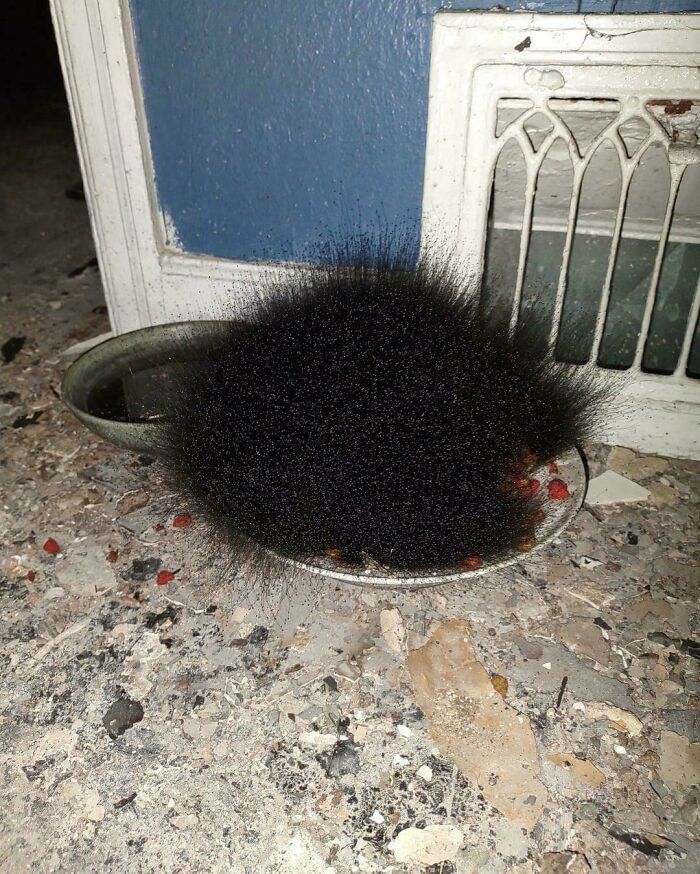
Image credits: reddit.com
Bored Panda’s previous article also mentioned a Washington Post interview with director Mathias Clasen. He classified horror fans into three types: adrenaline junkies, dark copers, and white knucklers.
Psychology professors Haiyang Yang and Kuangjie Zhang identified another personality type: someone who lacks empathy. Here’s an excerpt of their piece for Harvard Business Review in 2021.
“Those who are not so empathic can enjoy horror more. This is because those with a higher level of empathy tend to feel more negatively about the distress situations others experience, like people being tormented by a devious murderer in a film.”
#22 Passengers Boarding A British Airship For Its Last Voyage Killing 48 Of 53 On Board

Image credits: Granted_reality
#23 Today My Car Was Marked With Duct Tape On The Windshield And Handle. No Idea Why

Image credits: Letbutt
#24 Final Self Photo Of Kayaker Andrew Mccauley Recovered From His Memory Stick After His Disappearance. Credit : Jamesishere
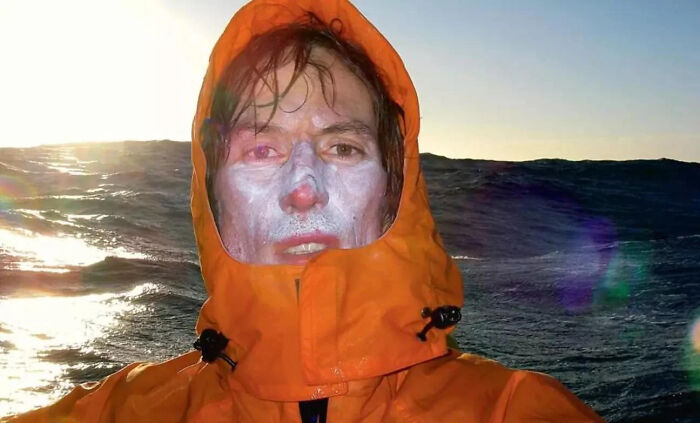
Image credits: AamirKhan7
#25 I Am Pink Underneath
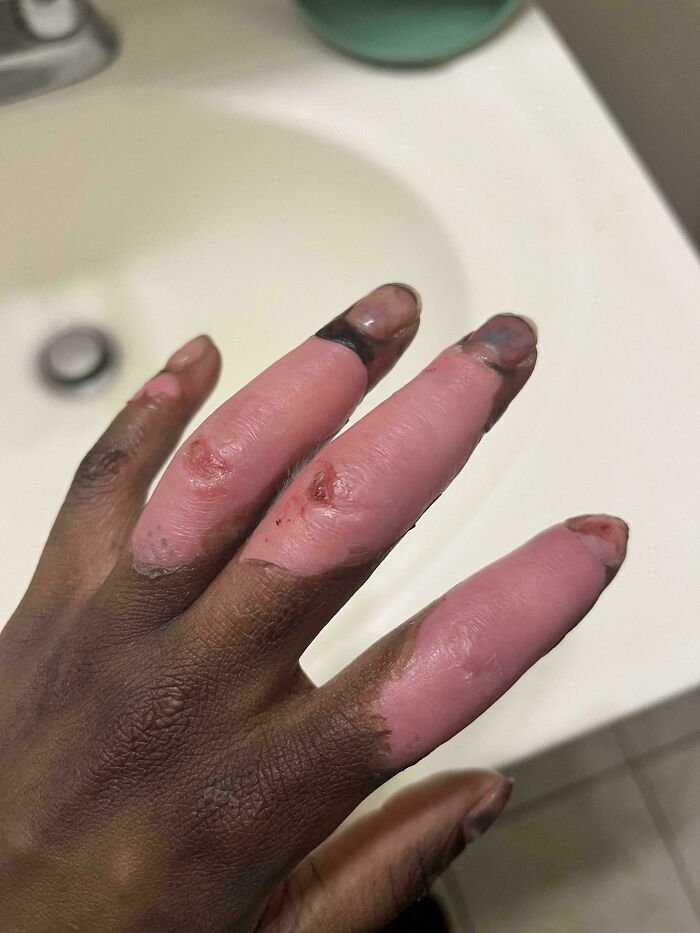
Image credits: jjazure1
#26 Portrait Of A Man Affected With What Is Now Believed To Have Been Congenital Syphilis C. 1820

Image credits: TheFlagMan123
#27 What Did Someone Else Know That We Don’t?

Image credits: reddit.com
#28 Woke Up This Morning To These Prints On My Back Yard Deck Came Right Up To My Glass Door
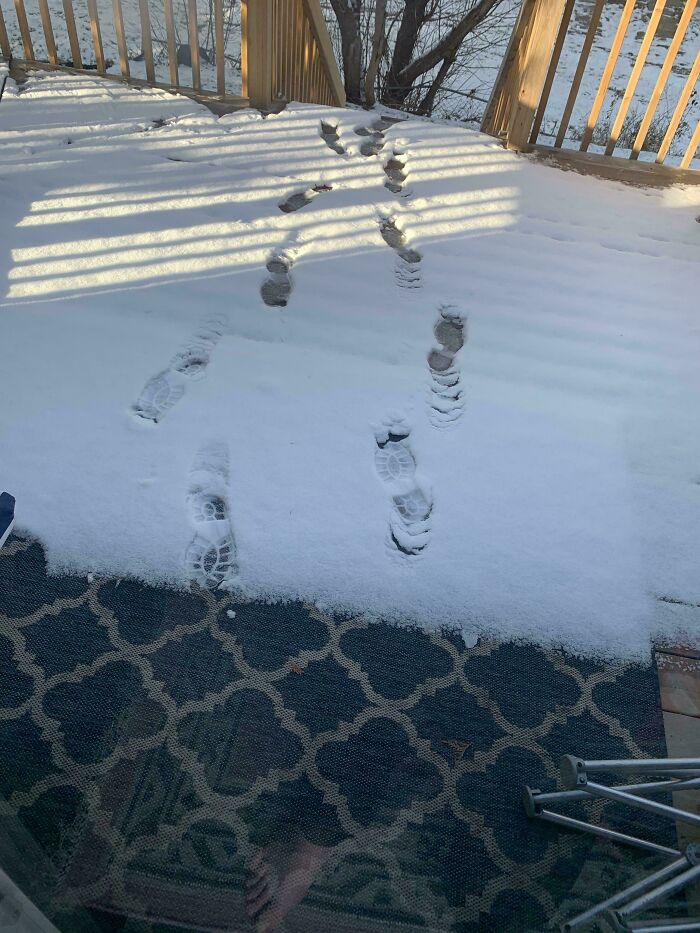
Image credits: Tall-Magazine335
#29 The Great Gorge Ruth Glacier In Alaska Is The Deepest At 3700 Feet
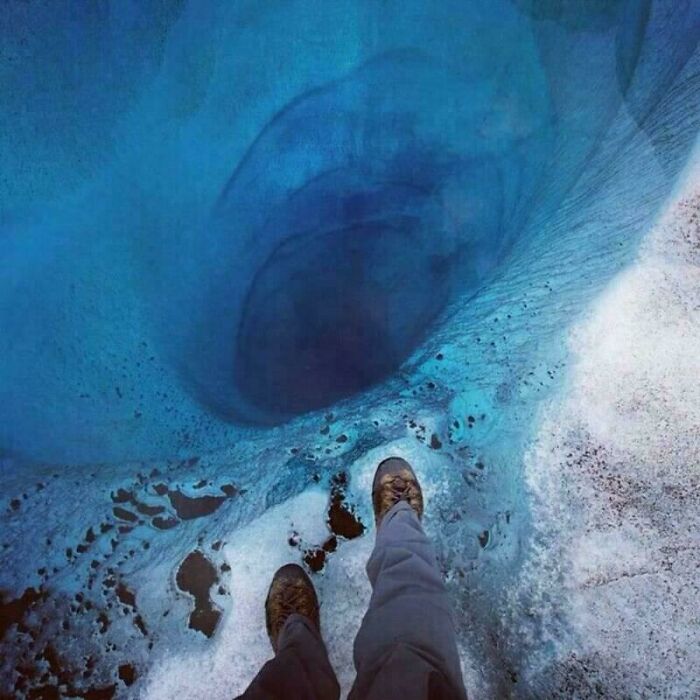
Image credits: Monsur_Ausuhnom
#30 A Bacteria Colony In A Snow Globe That Wasn’t Properly Sterilized
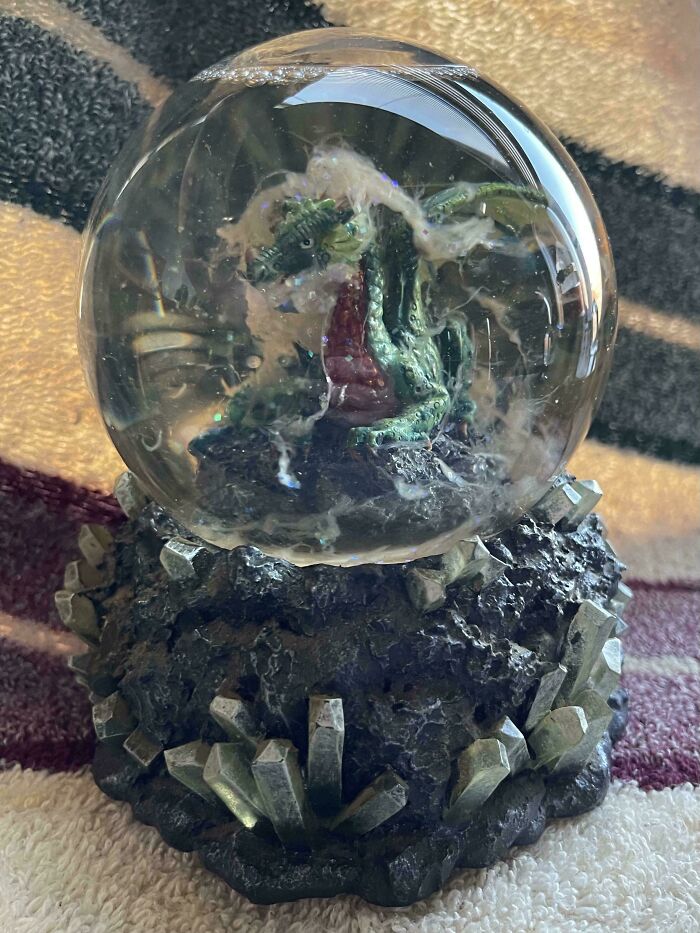
Image credits: DeficiencyWomb
Author G Neil Martin, an Honorary Professor of Psychology at Regent’s University of London, supported the “lack of empathy” theory. He published an article in 2019 entitled “(Why) Do You Like Scary Movies? A Review of the Empirical Research on Psychological Responses to Horror Films.” Here’s an excerpt:
“Low empathy and fearfulness are associated with more enjoyment and desire to watch horror films but … specific dimensions of empathy are better predictors of people’s responses than are others.”
#31 Unused Venom Design For Spider-Man 3

Image credits: UrameshiYuusuke
#32 What Severe Rheumatoid Arthritis Looks Like
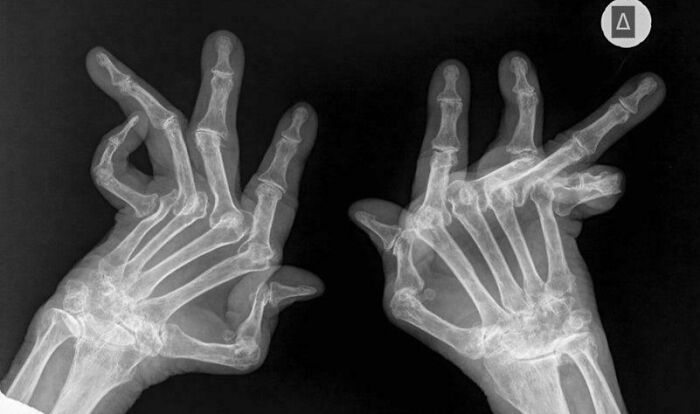
Image credits: Educational-Eye9518
#33 This Suburb Built On Top Of A Shopping Mall

Image credits: DeeperIntoTheUnknown
#34 Protective Mother Guarding Her Babies
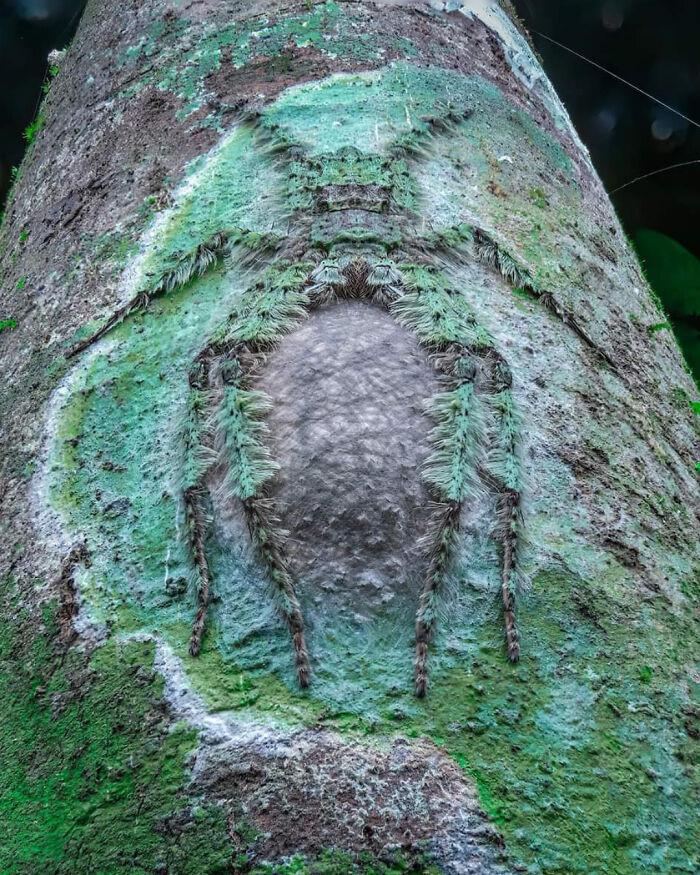
Image credits: Rogue_Patriot13
#35 I Had To Stop For Gas Around 1 Am
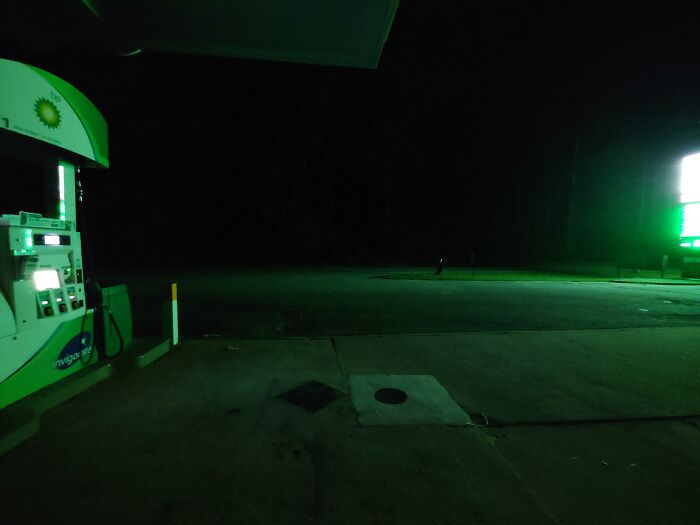
Image credits: kromaly96
#36 This Australian Children’s Cartoon Called ‘Dirtgirlworld’

Image credits: International_Car586
Gender also plays a role in the fascination for anything morbid. As Martin noted in his article, men are more likely to get a kick out of horror films than women, and here’s his explanation:
“Men and boys prefer to watch, enjoy, and seek our horror more than do women and girls. Women are more prone to disgust sensitivity or anxiety than are men, and this may mediate the sex difference in the enjoyment of horror.”
#37 French Diners Eating Tiny Birds Whole (From R/Interestingasfuck)

Image credits: wils_152
#38 The Gun That Started Ww1

Image credits: SirSenSej
#39 This Toilet Threatening To Cut My Fingers Off

Image credits: shoobie-squid
#40 The Image Generated By My Teacher During A Demo To Show How A Bad Agent Might Try To Extract The Training Data From A Neural Network

Image credits: 0udini
#41 This Morning, I Got An Image From My Sister

Image credits: Stalk_Jumper
#42 This Envelope Full Of Candy I Found On My Chair At Work
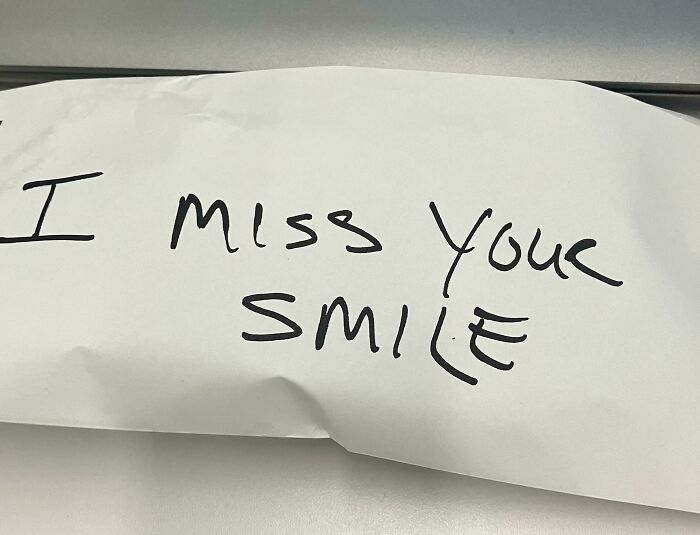
Image credits: dragonessofages
In his article, Martin also pointed out that children handle scary moments better. He wrote, “Physical coping strategies are more successful in younger children; priming with information about the feared object reduces fear and increases children’s enjoyment of frightening television and film.”
This rings true with eight-year-old Aubriella Lopez and her younger brother, six-year-old Dominic. Both are fans of the Michael Myers character from Halloween. Their mother, Kayla, spoke to CNN, saying, “I don’t really know of anybody that likes horror as much as them, honestly.”
#43 Workers Polishing The Gateway Arch 630 Feet Above The Ground In Saint Louis, Mo 1965

Image credits: Spiritual_Ear_3456
#44 These Twins

Image credits: Lucidlarceny
#45 A Missing Person’s Page From An Old High School Yearbook
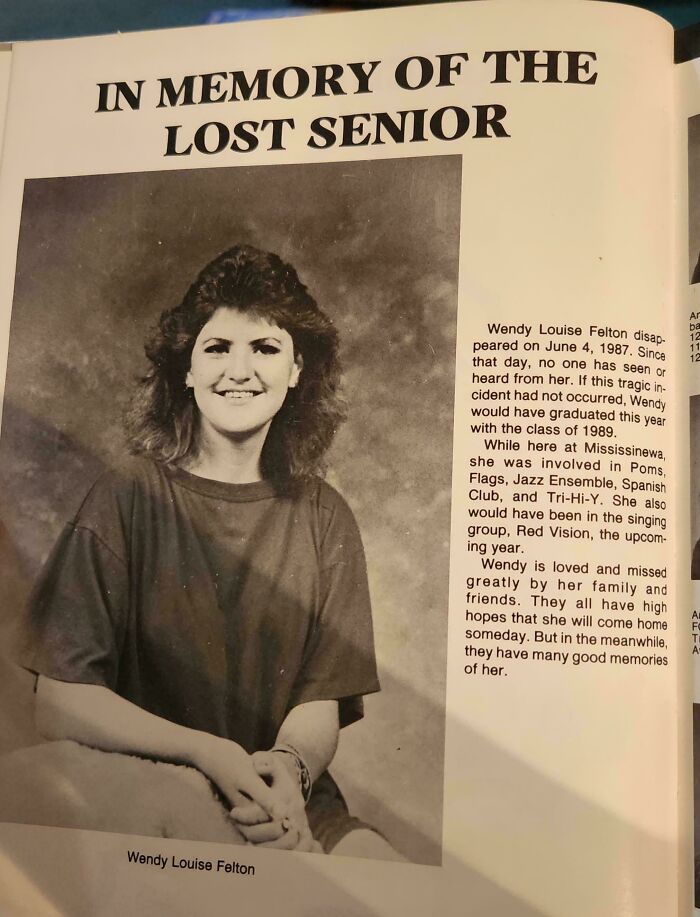
Image credits: Trashpit996
#46 Abandoned House And Jeep Found On A Hill/Mountain. Eery To Look At

Image credits: blending-tea
A child, of course, processes fear differently than an adult. And in the case of gravitating toward horror films, it could be more about proving something to themselves. This is according to Purdue University professor Glenn Sparks, who also spoke with CNN.
“Some children may be more willing to expose themselves to potentially scary things, perhaps because of the gratification they think they will experience from being able to conquer those things.”
#47 Extreme Close-Up Of A Wolf Spider. Photo Credits: John-Oliver Dum
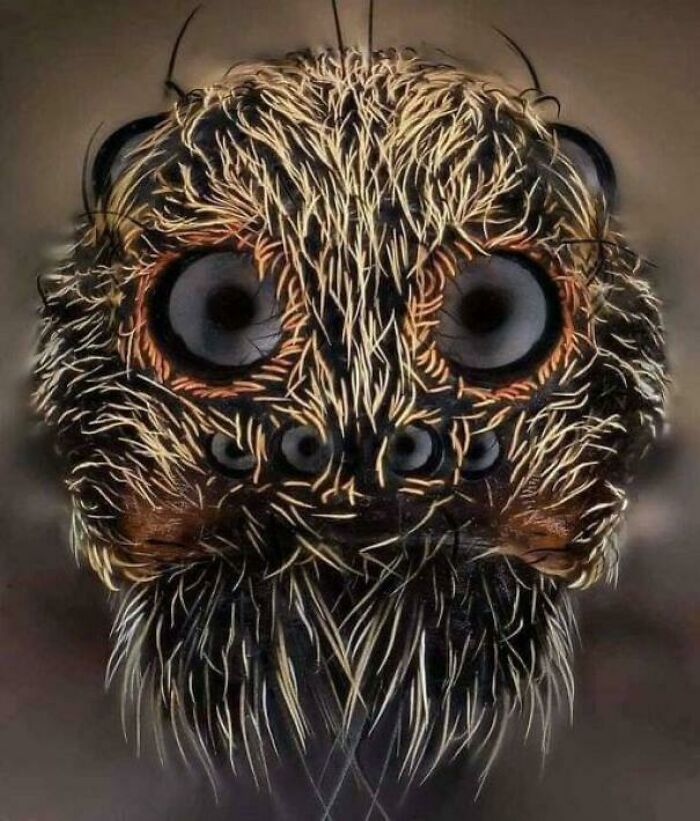
Image credits: j3ffr33d0m
#48 My Lemon Tree Grew One Huge Mutant Leaf To Better Absorb TV Radiation
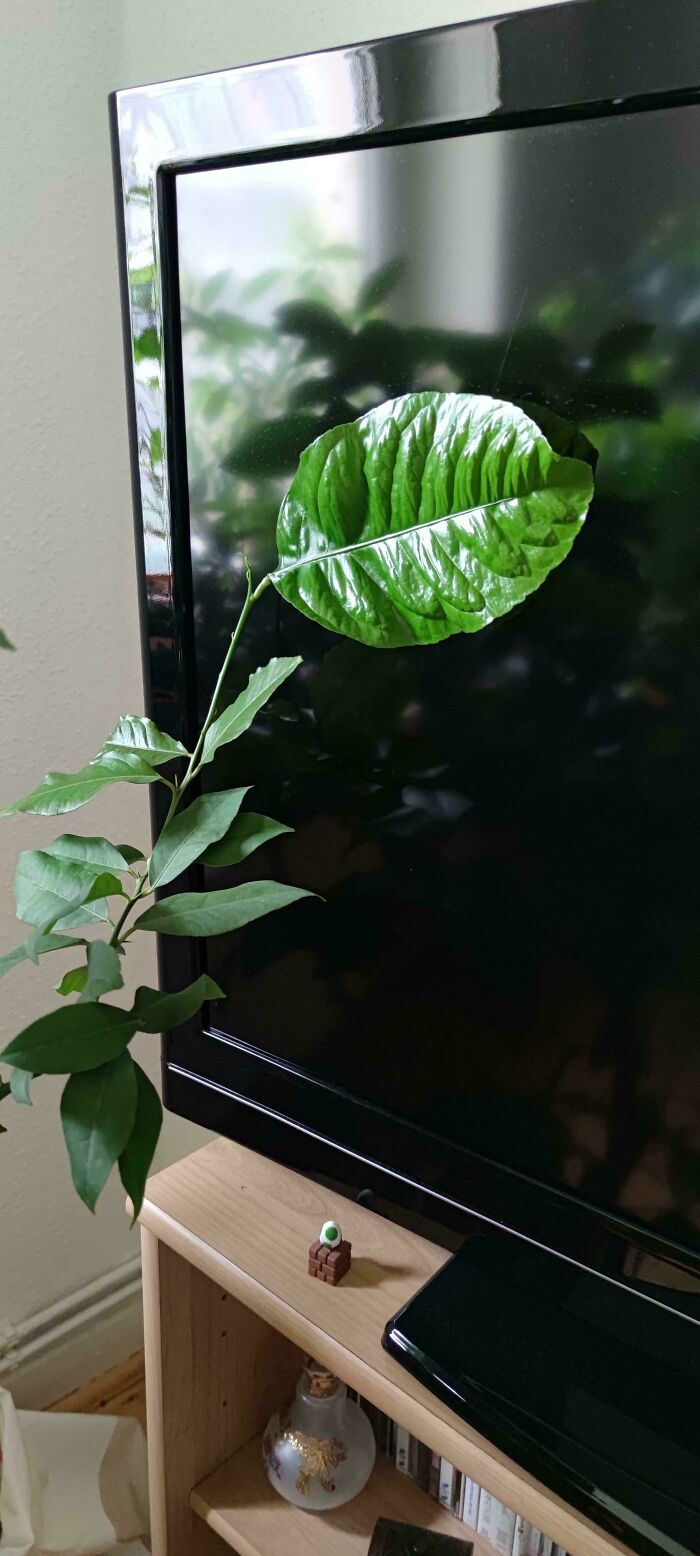
Image credits: BaronVonBroccoli
#49 ? Bonus Gift For Being The First Customer

Image credits: IVMVI
#50 Message Is Clear Girlfriend. Going To Lowe’s First Thing In The Morning

Image credits: barkadam
However, watching horror films doesn’t always sow terror in a person’s psyche. Sometimes, it may bring two people closer together to spark a romance. This is according to NYU professor John Montgomery, PhD, who published an article on Psychology Today.
According to Dr. Montgomery, it’s the anxiety that draws attraction. He wrote, “Something about the state of fear or anxiety, in other words, appears to make many of us more likely to experience feelings of sexual attraction towards other people.
“Such a tendency may have originally evolved to encourage us to connect with or attach to other people when our survival is at risk.”
#51 This Photo In My Doctor’s Office
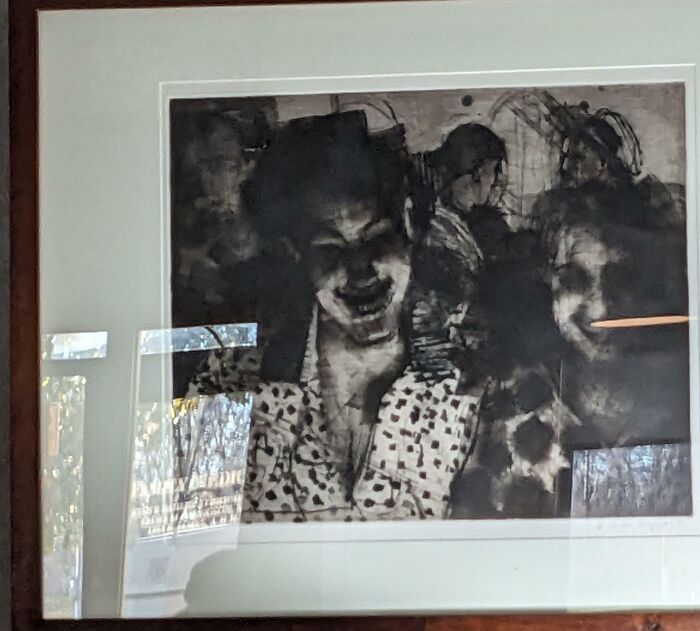
Image credits: ChocoGoodness
#52 A Lone Scientist Descending Into The Radioactive Darkness Of Chernobyl In 1986
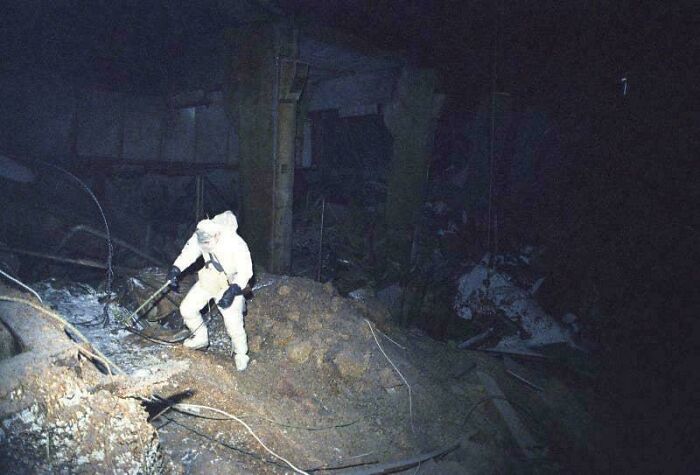
Image credits: my_vision_vivid
#53 Oddly Unreal Looking Side Of The Road

Image credits: BaronVonBroccoli
#54 Cancer Warning On Rice??!!

Image credits: sarashootsfilm
#55 Staircase To Nowhere In The Woods
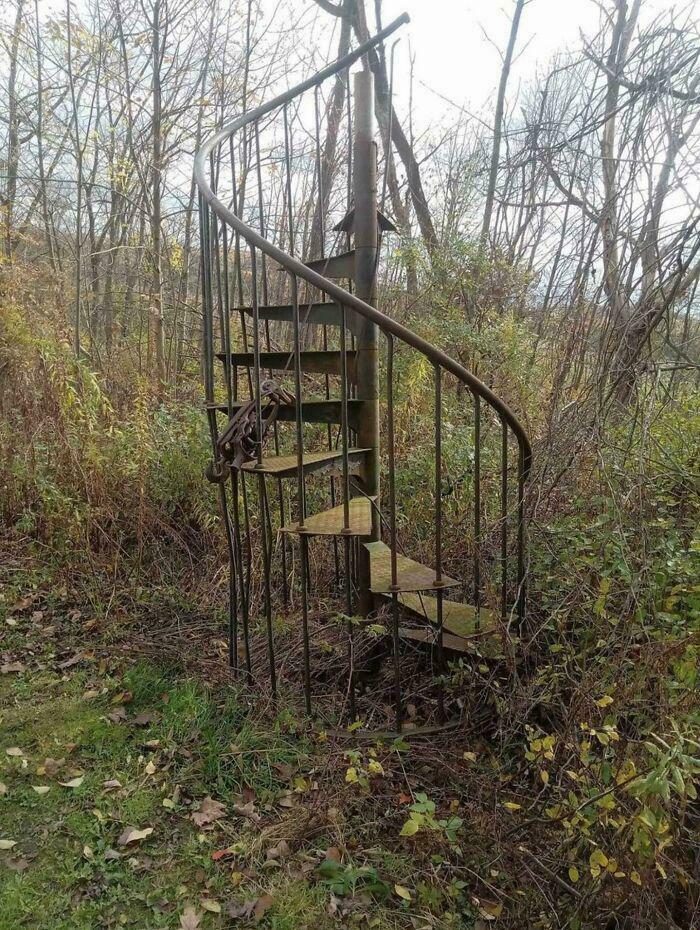
Image credits: Monsur_Ausuhnom
#56 Still Figuring Out The Dropzone Location
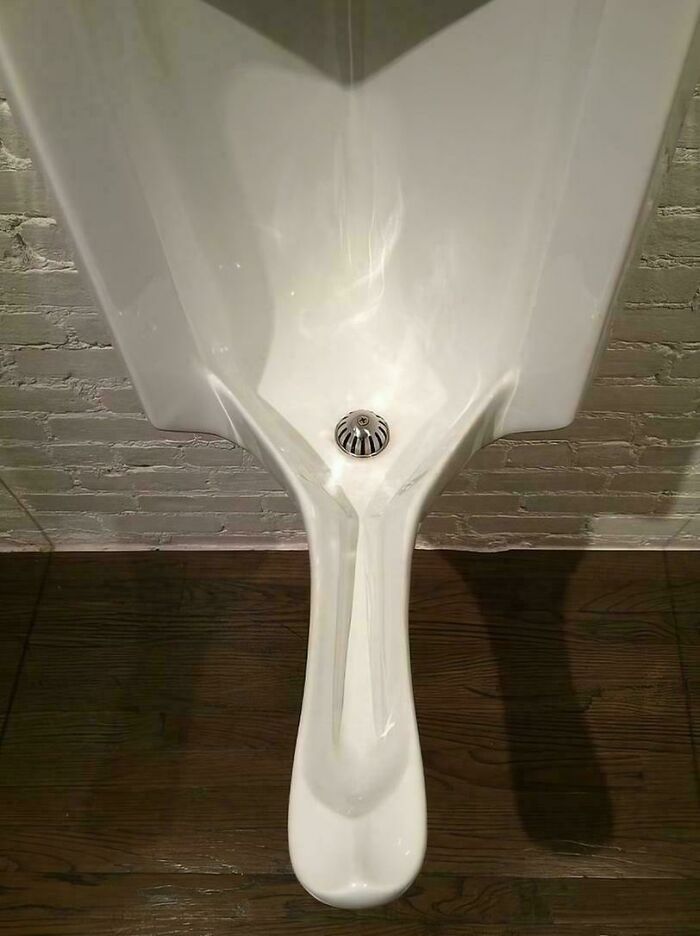
Image credits: Sming7177
#57 This Creepy Child’s Book My Mom Got My 1 Year Old- She Hates It

Image credits: fightingcrime
#58 Baby Cages Used To Ensure That Children Get Enough Sunlight And Fresh Air When Living In An Apartment Building, 1937
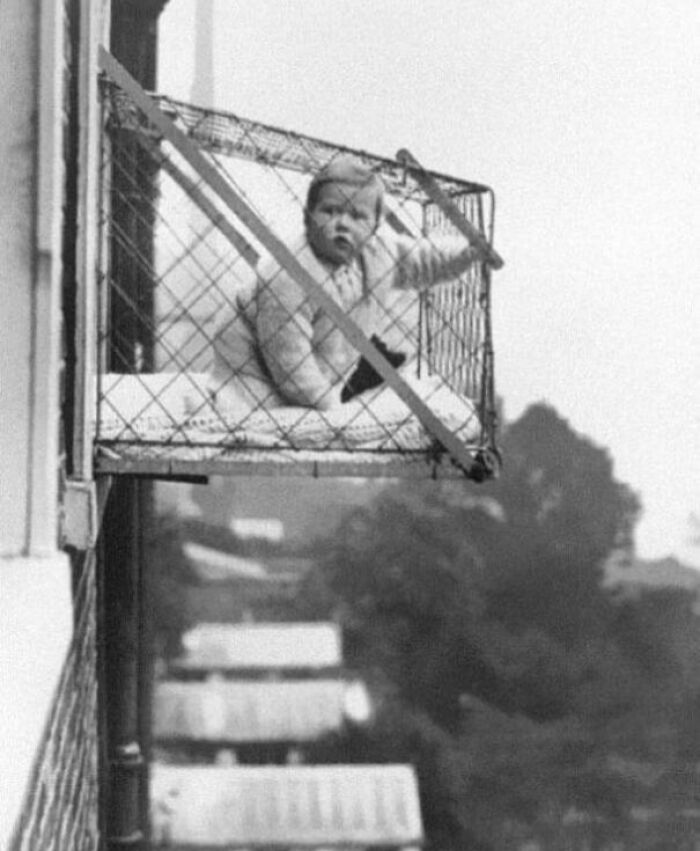
Image credits: rockhavenrick
#59 On The Set Of Godzilla (1954)
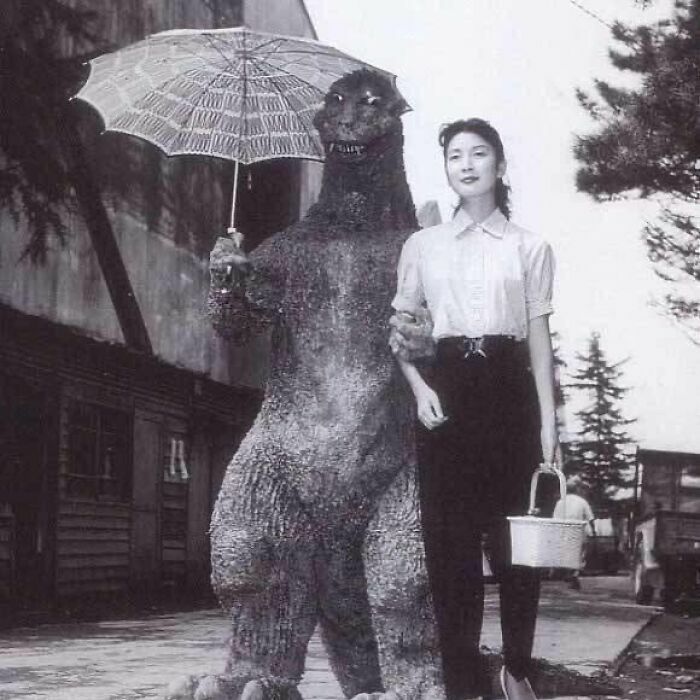
Image credits: Monsur_Ausuhnom
#60 This Old Well (I’m Assuming) Covered Under My House

Image credits: IshMorningstar
#61 Cave Lion Skull Found In The Alaskan Permafrost

Image credits: gustavotherecliner
#62 I Got My Mom A New Mattress For Her Hospital Bed. It Came With A Booklet Of Bed Rail Risks. This Is The First Page
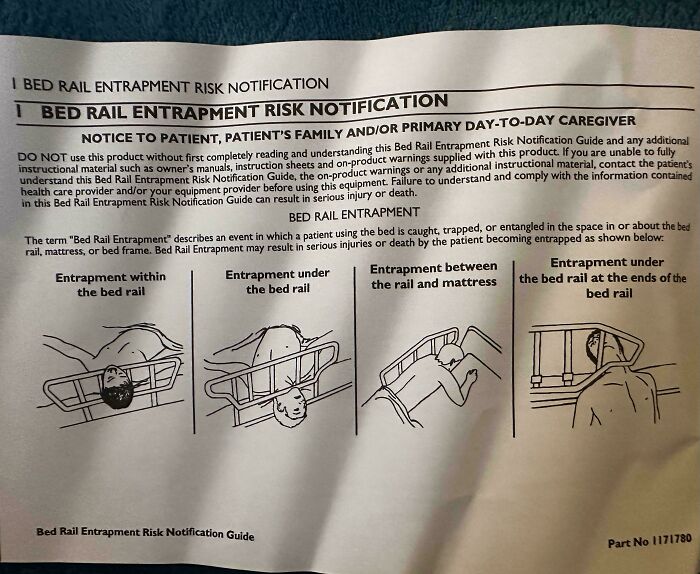
Image credits: AzulaOblongata
#63 My Parents Came Back Home To This. Almost Burned Their House Down With This Concave Mirror

Image credits: willi_the_racer
#64 Kidney Stone….i Passed Out

Image credits: ZippyMcLintball
#65 The Sleek, Sexy, And Somewhat Sinister Razorbill
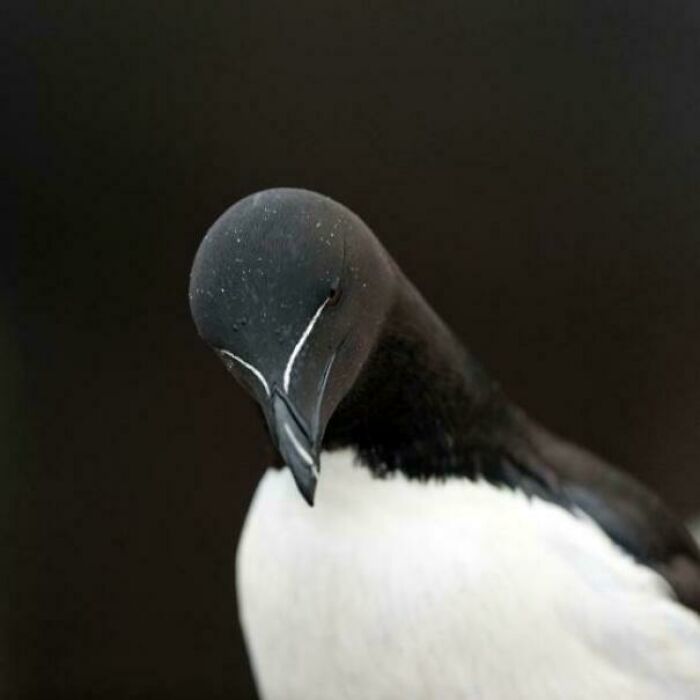
Image credits: 25QS2
#66 Cervix Dilation During Childbirth Illustrated Through Carved Pumpkins. Fyi The Cervix Is Inside The Vagina And The Opening Is Normally Closed, Like Much Smaller Than 1cm
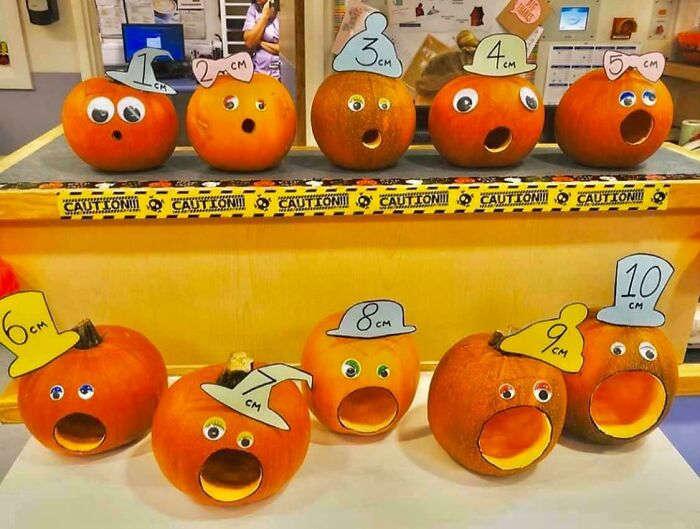
Image credits: Lvl100Magikarp
#67 Apparently, This Was Someone’s Wisdom Tooth:
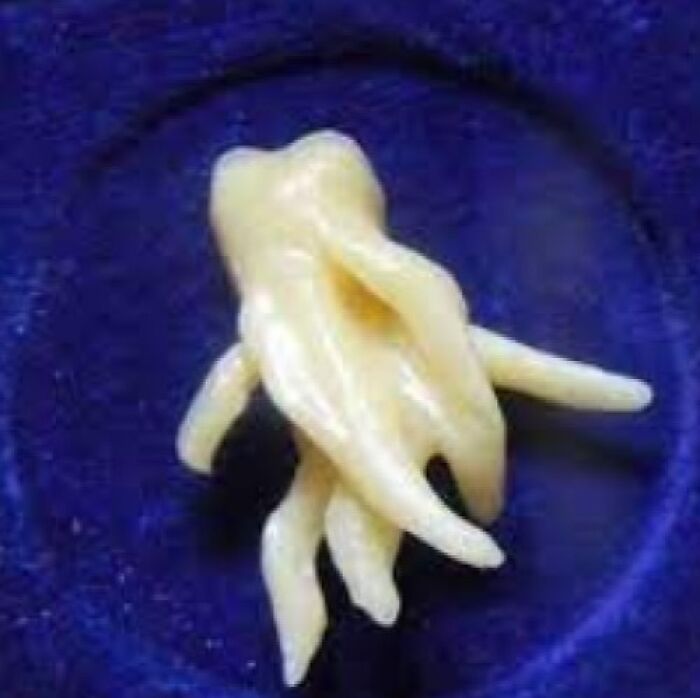
Image credits: Brent_Fox
#68 The Stomach Contents Of A Psychiatric Patient Who Suffered From Pica Disorder, A Disease Characterized By An Appetite For Inedible Objects

Image credits: LewiRock
#69 I Woke Up To Loud Tapping On My Window
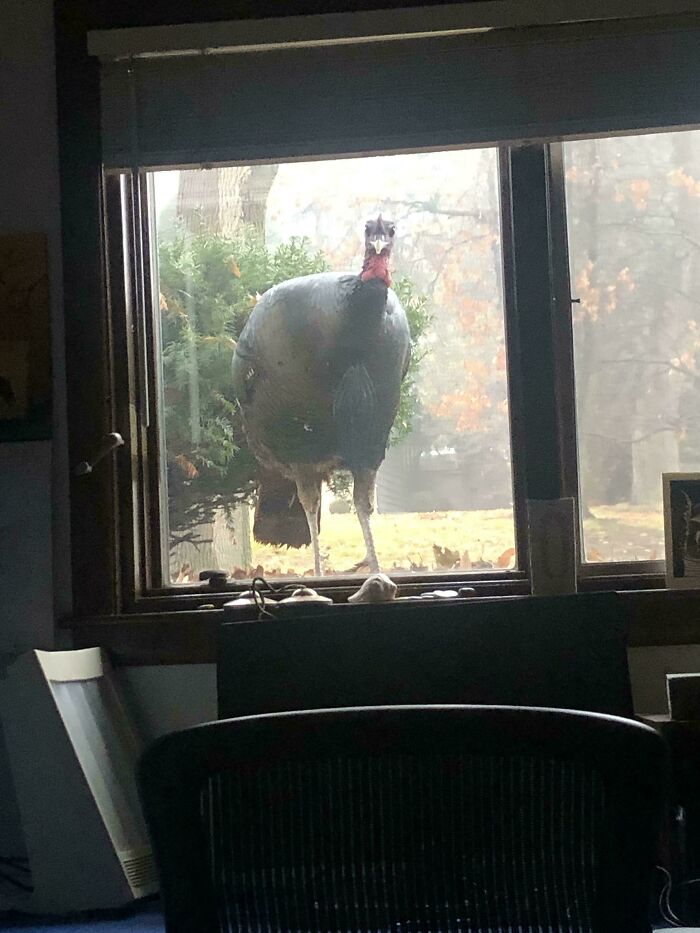
Image credits: DontHailHydra
#70 After The Attack On Pearl Harbor In 1941, Some Sailors Were Trapped On The Uss West Virginia And The Uss Oklahoma. One Group Of Men Survived 16 Days, Which They Tallied On The Wall Of The Storeroom Where They Were Trapped. No One Wanted Guard Duty Because Of The Incessant Banging And Screaming

Image credits: Quick_Presentation11
#71 It’s A What? You’re All What?

Image credits: reddit.com
#72 The Sink At This Restroom

Image credits: PatientDom
#73 World’s Largest Pitbull

Image credits: ShrekTheWereogre
#74 Just How Deep Oil Rigs Are Scares The Living Shit Out Of Me

Image credits: IdkWhatImEvenDoing69
#75 Size Of Grizzly Bear Paw

Image credits: Monsur_Ausuhnom
#76 This Nikocado Avocado Thumbnail I Came Across
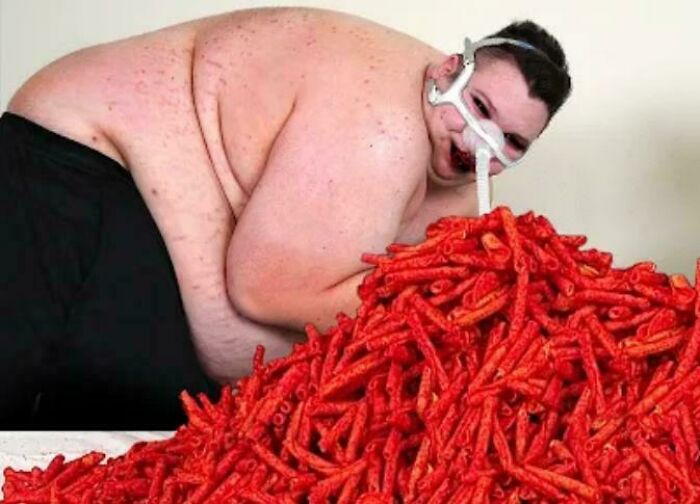
Image credits: neapolitanbby
#77 Was Delivering Drywall On A Flatbed And This Was Next To My Truck During Unload. Receivers Had No Explanation As To Why It Was There
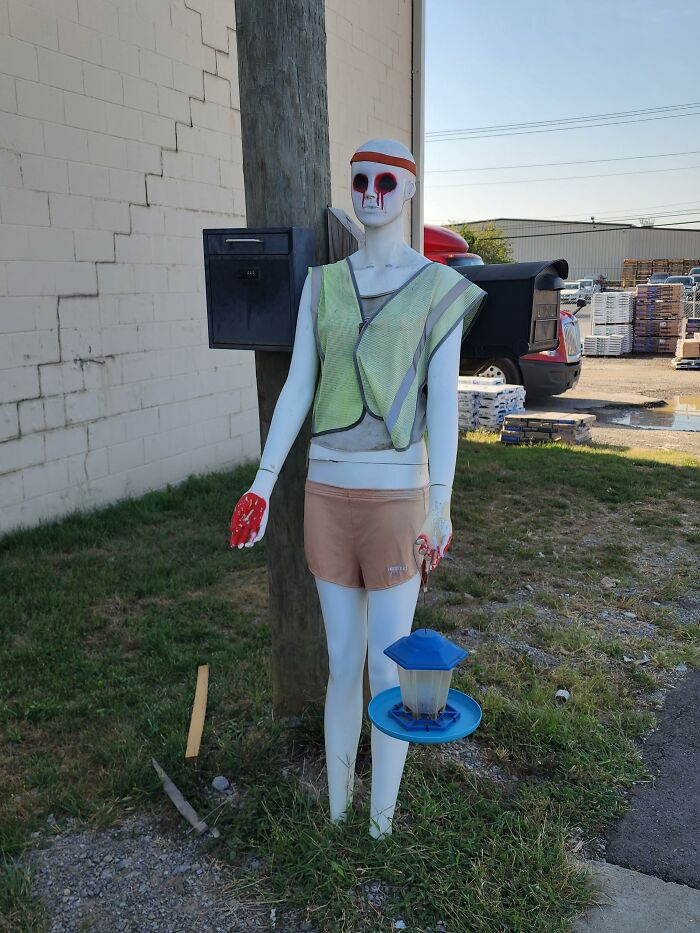
Image credits: Sara_MotherofAlessa
Recommended Videos
 20 Birds with the Most Colorful Feathers4047 views
20 Birds with the Most Colorful Feathers4047 views Giant Horse Conch getting some breakfast...114 views
Giant Horse Conch getting some breakfast...114 views-
Advertisements
 46 Rare Marilyn Monroe Photos Reveal Her Life Before She Was Famous1042 views
46 Rare Marilyn Monroe Photos Reveal Her Life Before She Was Famous1042 views Hollywood In The 2000s92 views
Hollywood In The 2000s92 views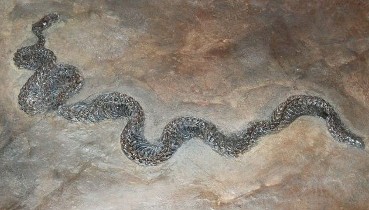 This 48-Million-Year-Old Fossil Has an Insect Inside a Lizard Inside a Snake142 views
This 48-Million-Year-Old Fossil Has an Insect Inside a Lizard Inside a Snake142 views Rare Pink Katydid Found in Aquinnah84 views
Rare Pink Katydid Found in Aquinnah84 views 115 Buddha Tattoo That Will Awaken Your Spirituality257 views
115 Buddha Tattoo That Will Awaken Your Spirituality257 views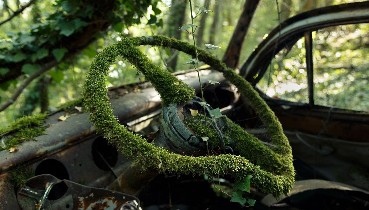 “When Nature Reclaims Its Rights”: My Exploration Through 19 Pics109 views
“When Nature Reclaims Its Rights”: My Exploration Through 19 Pics109 views
You may also like
 Wildlife Photographer Captures A Rare Yellow Penguin
Wildlife Photographer Captures A Rare Yellow Penguin  121 Of The Worst Designs Ever That People Couldn’t Help But Shame Online
121 Of The Worst Designs Ever That People Couldn’t Help But Shame Online 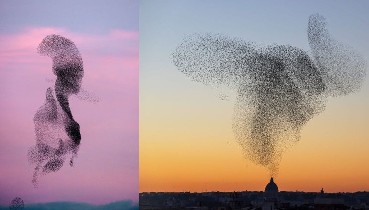 A Photographer’s Hauntingly Beautiful Images of Starling Murmurations
A Photographer’s Hauntingly Beautiful Images of Starling Murmurations  The German Women’s Gymnastics Team Wore Full-Body Suits To Take A Stand Against The Sexualization Of Young Athletes
The German Women’s Gymnastics Team Wore Full-Body Suits To Take A Stand Against The Sexualization Of Young Athletes